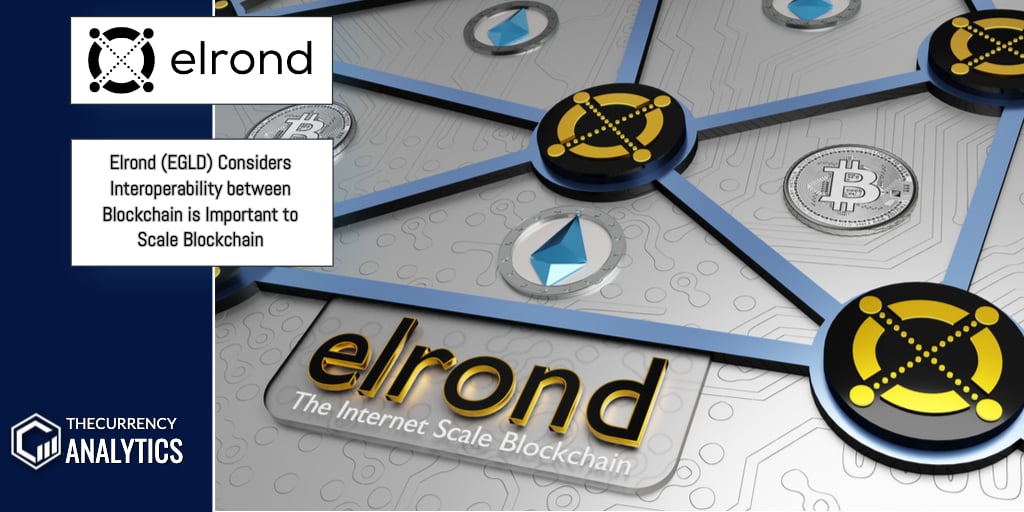
Elrond is a blockchain network which mainly focuses on prioritizing scalability by adaptive state sharding. They have recently announced the beginning of their integration with Poly Network. The sooner the integration is complete, the implementation will permit applications and tokens on the Elrond Mainnet to connect with and transfer across to several other participating blockchains.
NEO, Switcheo and Ontology have together founded the polynetwork. Thus, this network supports heterogeneous chains and it does not have a token of its own. At present, PolyNetwork has made possible interoperability among Neo, Ethereum, Ontology, Cosmos, and Bitcoin.
Elrond is looking to leverage the protocol to encourage the value transfer between liquid assets like BTC or ERC-20 tokens to its blockchain.
Elrond CEO, Beniamin Mincu, stated, “We are building Elrond to be the internet-scale blockchain. That means throughput on par with the performance needs of the internet, as well as interoperability with the most widely adopted networks. Beyond performance, interoperability becomes the most important component for Elrond.”
Commenting, Sydney Ifergan, the crypto expert tweeted: “Elrond (EGLD) with the advancement and maturity of the blockchain industry are focusing on improving scalability. It is good to see every blockchain focusing on scalability.”
For those who are just getting to know Elrond, it is a new blockchain architecture, which is designed from scratch to bring in 1000-fold cumulative improvement by virtue of throughput and execution speed.
To make this possible, Elrond (EGLD) have introduced two key innovations, which is a novel Adaptive State Sharding mechanism, and a Secure Proof of Stake (PoS) algorithm, which makes it possible to enable linear scalability with a fast, efficient, and secure consensus mechanism.
Elrond (EGLD) is able to process nearly 15,000 transactions per second (TPS), with 6-second latency, and the costs are negligible. The network is trying to become the backbone of a permissionless, borderless, and globally accessible internet economy.
Elrond Smart Accounts provide for some key value storage use cases. There are internal and external updates happening.
For internal updates, an owner will be able to store large amounts information in their account, like email, BTC address, social network info, or hashes for private data pertaining to identity, health data, or other sensitive info.
For External updates, information like the KYC status, citizenship, various memberships, or flags relating to third party systems will be added by third-party smart contracts in plain or encrypted form.
For True ownership, it is possible to have digital assets attached directly to an account, rather than bloating the state of different smart contracts which are governing them.
Get the latest Crypto & Blockchain News in your inbox.